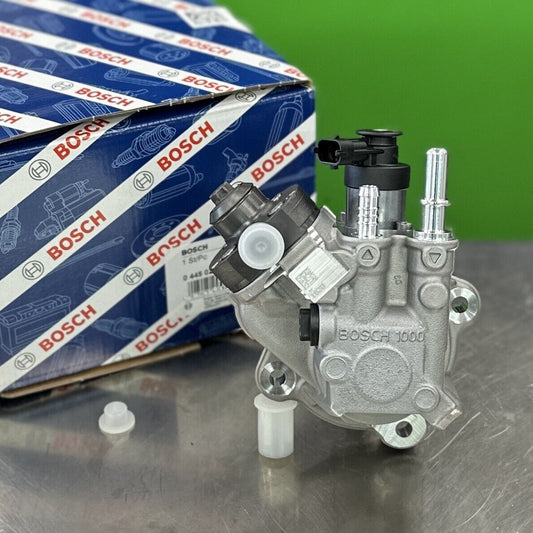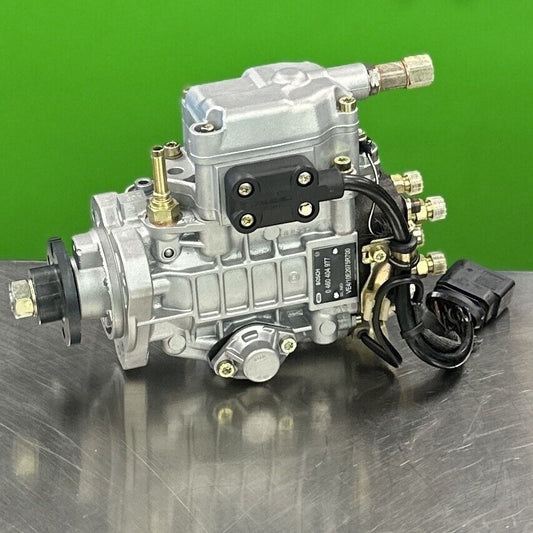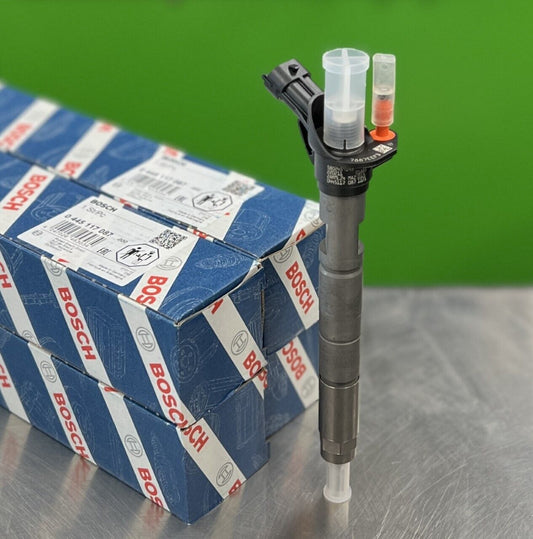Fuel Injector Diagnostics: How to Identify Issues Early
Fuel injectors play a crucial role in the optimal performance of a vehicle's engine. Detecting issues with fuel injectors early on is essential to prevent potential engine damage and ensure smooth operation. In this article, we will delve into the significance of identifying fuel injector problems promptly.
Modern vehicles rely on fuel injectors to deliver the precise amount of fuel into the combustion chamber. These components atomize the fuel, allowing for efficient combustion and power generation. Understanding how fuel injectors work is key to recognizing when they are not functioning correctly.
There are several signs that can indicate potential fuel injector issues. Engine misfires, rough idling, and a noticeable decrease in fuel efficiency are common symptoms that should not be ignored. Addressing these signs promptly can prevent further damage to the engine.
Diagnosing fuel injector problems involves various techniques and tools. Visual inspections can reveal physical damage or leaks, while fuel pressure tests help determine if the injectors are delivering fuel properly. Electronic diagnostics provide detailed information about the injector's performance.
Preventive maintenance is crucial for keeping fuel injectors in top condition. Using high-quality fuel and additives can prevent clogs and buildup in the injectors. Regular cleaning and professional inspections can help identify and address issues before they escalate, saving both time and money in the long run.
Understanding Fuel Injectors
Fuel injectors are like the lifeblood of a vehicle's engine, responsible for delivering the precise amount of fuel into the combustion chamber at the right time. Imagine them as tiny but mighty precision machines that ensure your car runs smoothly and efficiently. These modern marvels have replaced carburetors in most vehicles due to their superior performance and fuel efficiency.
Inside each fuel injector, there is a nozzle that sprays a fine mist of fuel into the intake manifold. This mist mixes with air before entering the engine cylinders for combustion. The amount of fuel sprayed is controlled by the engine's computer, which calculates the optimal ratio for efficient burning. It's a delicate dance of timing and precision that keeps your engine running at its best.
One key advantage of fuel injectors is their ability to deliver fuel directly into the combustion chamber, resulting in more efficient fuel consumption and cleaner emissions. This targeted delivery system ensures that each cylinder receives the right amount of fuel, optimizing performance and reducing waste.
Without properly functioning fuel injectors, your vehicle may experience a range of issues, from poor acceleration and rough idling to decreased fuel efficiency and increased emissions. Understanding how fuel injectors work is essential for diagnosing problems early and avoiding costly repairs down the road.
Signs of Fuel Injector Problems
When it comes to identifying potential fuel injector problems in your vehicle, paying attention to certain signs can help you address issues early and prevent more significant damage down the road. Here are some common symptoms that indicate fuel injector issues:
- Engine Misfires: One of the most noticeable signs of a fuel injector problem is engine misfires, where the engine stutters or jerks during acceleration.
- Rough Idling: If your vehicle's engine idles roughly or inconsistently, it could be a sign of fuel injector issues affecting the combustion process.
- Decreased Fuel Efficiency: A sudden decrease in fuel efficiency, where you find yourself refueling more frequently for the same distance traveled, can also point to fuel injector problems.
- Strange Smells: Unusual odors like a strong gasoline smell or the scent of burning fuel could indicate fuel injector leaks or malfunctions.
- Engine Performance Issues: Overall poor engine performance, including sluggish acceleration and lack of power, might be linked to faulty fuel injectors.
These signs should not be ignored, as they could lead to more severe engine damage and higher repair costs if left unaddressed. If you notice any of these symptoms in your vehicle, it's essential to have your fuel injectors inspected and diagnosed promptly to maintain optimal performance.
Diagnostic Techniques
When it comes to diagnosing fuel injector issues in vehicles, there are several techniques and tools that mechanics use to pinpoint the exact problem. One common method is a visual inspection, where the technician examines the fuel injectors for any visible signs of damage or clogging. This can include looking for leaks, cracks, or buildup that may be affecting the injector's performance.
Another diagnostic technique involves conducting fuel pressure tests. By measuring the pressure of the fuel system, mechanics can determine if the fuel injectors are delivering the correct amount of fuel to the engine. Low fuel pressure could indicate a clogged injector or a faulty fuel pump, while high pressure may point to a stuck injector.
Electronic diagnostics are also a crucial tool in identifying fuel injector issues. Mechanics use specialized equipment to scan the vehicle's onboard computer system for error codes related to the fuel injectors. These codes can provide valuable insights into the specific problem affecting the injectors, allowing for targeted repairs.
In some cases, a mechanic may need to perform a fuel injector balance test to ensure that each injector is delivering fuel evenly to all cylinders. This test can help identify any injectors that are underperforming or malfunctioning, leading to a more accurate diagnosis and repair plan.
Additionally, ultrasonic cleaning is a technique used to remove stubborn deposits and buildup from fuel injectors. This process involves placing the injectors in a specialized cleaning solution and using ultrasonic waves to break down and remove any contaminants. This can improve the injector's performance and restore optimal fuel delivery to the engine.
Preventive Maintenance Tips
When it comes to maintaining the health of your vehicle's fuel injectors, taking preventive measures is key to avoiding unexpected surprises and costly repairs. Here are some to keep your fuel injectors in top condition:
1. Use High-Quality Fuel: Opt for reputable fuel brands that contain detergents to help clean and lubricate the fuel injectors. Low-quality fuel can leave deposits that clog the injectors over time, affecting their performance.
2. Regular Cleaning: Consider adding a fuel injector cleaner to your gas tank periodically to remove any buildup or deposits. This simple step can help prevent clogs and ensure optimal fuel delivery.
3. Professional Inspections: Schedule regular inspections with a qualified mechanic to check the condition of your fuel injectors. They can perform diagnostic tests to identify any potential issues early on and recommend necessary maintenance.
4. Monitor Fuel Efficiency: Keep an eye on your vehicle's fuel efficiency. A sudden decrease in miles per gallon could indicate fuel injector problems. Addressing issues promptly can prevent further damage to your engine.
5. Follow Manufacturer Recommendations: Adhere to the manufacturer's guidelines for fuel injector maintenance. Regularly changing the fuel filter and following recommended service intervals can help prolong the life of your fuel injectors.
6. Avoid Overloading: Excessive strain on your vehicle, such as towing heavy loads beyond its capacity, can put extra stress on the fuel injectors. Be mindful of your vehicle's limitations to prevent premature wear and tear.
7. Keep Fuel Tanks Full: Maintaining a consistent fuel level in your tank can help prevent the accumulation of sediment and debris that may clog the fuel injectors. Avoid running on low fuel whenever possible.
8. Inspect for Leaks: Regularly check for any fuel leaks around the fuel injectors or fuel lines. Leaks can not only affect engine performance but also pose a safety hazard. Address any leaks promptly to prevent further damage.
By following these , you can proactively care for your vehicle's fuel injectors and ensure smooth operation. Remember, a little maintenance now can save you from a big explosion of problems down the road.
```htmlFrequently Asked Questions
-
What are the common signs of fuel injector problems?
Common signs of fuel injector issues include engine misfires, rough idling, decreased fuel efficiency, and a noticeable decrease in engine performance. If you experience any of these symptoms, it is advisable to have your fuel injectors inspected by a professional mechanic.
-
How can I prevent fuel injector problems?
Preventive maintenance is key to avoiding fuel injector issues. Some tips to prevent problems include using high-quality fuel, regular cleaning of injectors, ensuring proper fuel system maintenance, and scheduling professional inspections to catch any potential issues early on.
-
What diagnostic techniques are used to identify fuel injector issues?
There are various diagnostic techniques used to identify fuel injector problems. These may include visual inspections for signs of leaks or clogs, fuel pressure tests to check for proper fuel delivery, and electronic diagnostics to analyze injector performance. Consulting a qualified mechanic for accurate diagnosis is recommended.



